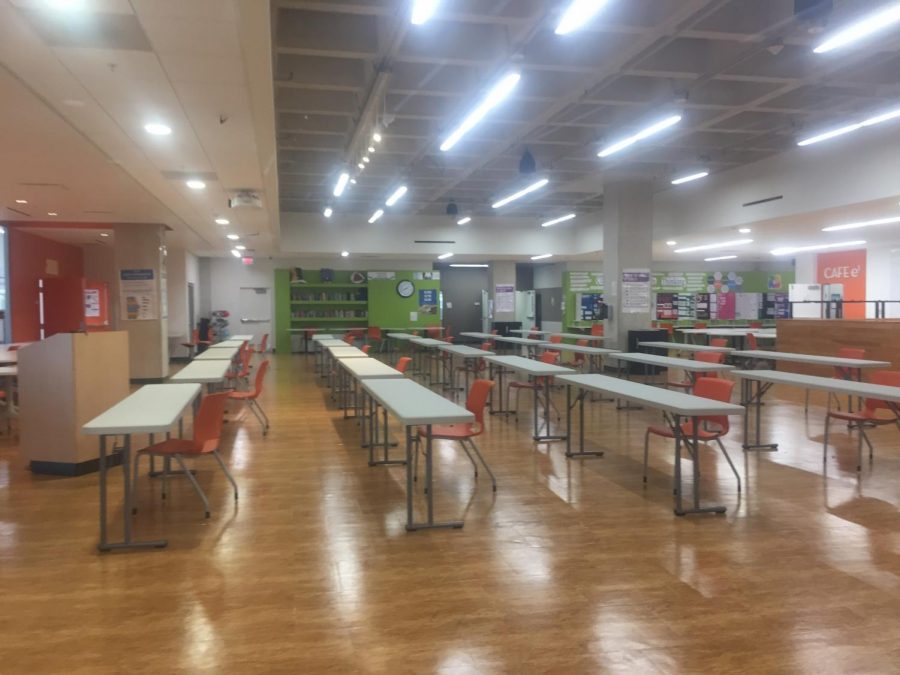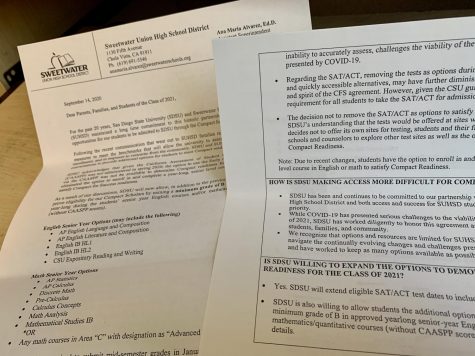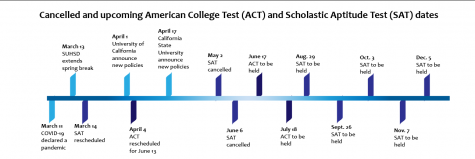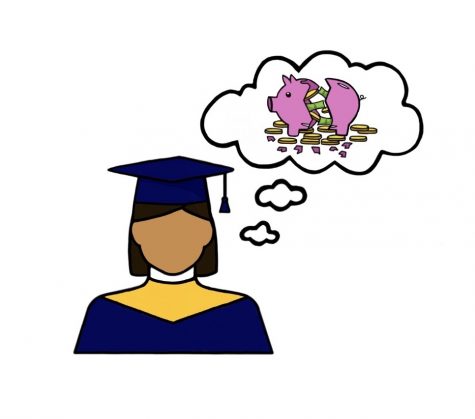e3 Civic High hosted the SAT on Oct. 3, where one BVH senior took the exam. Desks were separated in accordance to social distancing guidelines.
Students continue efforts to take SAT amid pandemic
December 1, 2020
Standardized tests and applying to college are considered milestones for many Bonita Vista High (BVH) seniors. Due to the COVID-19 pandemic, however, many testing centers closed to abide by social distancing guidelines. As a result, many universities made the Scholastic Aptitude Test (SAT) and American College Testing (ACT) exams optional for undergraduate admissions. Nonetheless, many BVH students continue to take the SAT as the fate of standardized tests in the college application process remains largely uncertain.
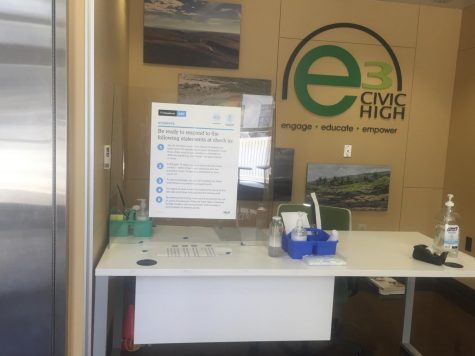
Senior Derek Czapek found it difficult to take the SAT as the testing sites he registered for were cancelled four times. Three were cancelled a week prior to the test while another was cancelled on the day of the test.
I was disappointed in the test cancellations because I worked hard over summer on Khan Academy studying for the SAT. Seeing all that work only for it to not be utilized was upsetting
— Senior Derek Czapek
“I was disappointed in the test cancellations because I worked hard over summer on Khan Academy studying for the SAT. Seeing all that work only for it to not be utilized was upsetting,” Czapek said.
After his tests were cancelled, Czapek explains that his biggest challenge was to renew the fee waivers he had received from the College Board, which provides low-income students two SAT administrations for free. Other than that, he isn’t concerned about not taking the tests due to the tests being optional for many universities.
“I thought if colleges are really saying [the tests are] optional, then I trust they will stick to the methods of fully evaluating my application without consideration of test scores,” Czapek said.
On the other hand, BVH senior Jacob Lozano was unable to find a close testing location but secured a testing site in Borrego Springs, 90 miles away from San Diego. Lozano studied for the test using Khan Academy, a video learning platform and SAT prep books. Although he felt positive about his performance on the exam, he plans to take it again, as he believes he can improve.
“I feel pretty good. I think that I did alright on the test [and] I want to take it again,” Lozano said. “[But] I think I was privileged [in] being able to take it because many students were not able [to].”
Lozano believes BVH seniors applying to college shouldn’t be “too worried” about having an SAT score as the college admissions process is holistic, taking into account multiple components of a student’s application.
“Colleges look at your other features of your application more and place more weight on them. Testing is much more ancillary; it’s not a very big component, so if you don’t have one, [colleges won’t] penalize you. [They will look at] your college essays and [Grade Point Average] (GPA) [more],” Lozano said.
Before distance learning began, some students received free SAT tutoring on Saturdays with Accelerated Biology teacher Joseph Szakovits. Former Assistant Principal Jennifer Barker-Heinz offered approximately 35 students the opportunity to participate in the SAT classes via a Jupiter Grades message. However, due to the COVID-19 pandemic, many students in the program were unable to take the SAT.
“One of the things that is of great regret to me is that those students that I was preparing did not get the chance to take the SAT. A lot of students that I helped in that process were very upset about that,” Szakovits said. “It’s a small thing in the scheme of things, but it was one of the many casualties of the pandemic.”
Szakovits believes that despite most universities enacting optional test policies, which claim to not harm students without test scores, taking the SAT may still be worthwhile. He speculates that SAT scores may still boost students’ college applications given the uncertainty of the tests’ importance.
“It’s not really 100 perent clear what ‘optional’ means. Those of us who have applied for a job know that something that’s optional on your job application can potentially be important. I think that right now we have a nebulous situation where it’s not really clear how it’s going to be weighted over the course of the next couple of years,” Szakovits said.
Lozano is applying to University of California (UC) schools, which implemented test blind policies, but he believes the SAT can help low-income students like him because a strong score may outweigh other factors in their college application.
“I think the SAT is a great way for students like me who don’t have all the resources to do well [in] other categories of the college application process. The SAT would be one way to compensate for the areas in which I cannot really do exceptionally because it’s out of my control,” Lozano said.
Conversely, Szakovits believes that the SAT can also be a force of inequity. Szakovits worked at a private SAT prep company that charged families 200 dollars per hour of tutoring, a price out of range for many low-income families. He believes the trend across universities to phase out standardized tests has “some merit” as it may help bridge socioeconomic gaps between students.
“It does appear that there [is] a socioeconomic factor for why some students [do] better than others [on the SAT]. The idea behind the SAT was originally to create a level playing field [because] people go to different schools and have different grades. Everybody takes the same test; the idea is to equalize it. [But] I think what they’re realizing is given what it takes to prepare for the SAT, it was not the level playing field they were hoping it would be. I think that that’s why we’re currently seeing [the SAT being] phased out,” Szakovits said.
As many speculate over the future of standardized tests, Szakovits believes that taking the SAT is ultimately an individual choice given the risks of COVID-19, but he expresses that during these challenging times, students should prioritize their academics and health above all.
“If you want to give yourself that edge by taking the SAT, that’s something I definitely encourage. Get yourself a book or [use] Khan Academy. [But] prioritize your grades [and] mental [and physical] health. We’re in a unique moment in time. If you’re in a place right now where you feel like it’s something that will benefit you, go for it. But [we’re] definitely [in] a moment in time where people’s priorities are not what they may have been a year ago,” Szakovits said.
